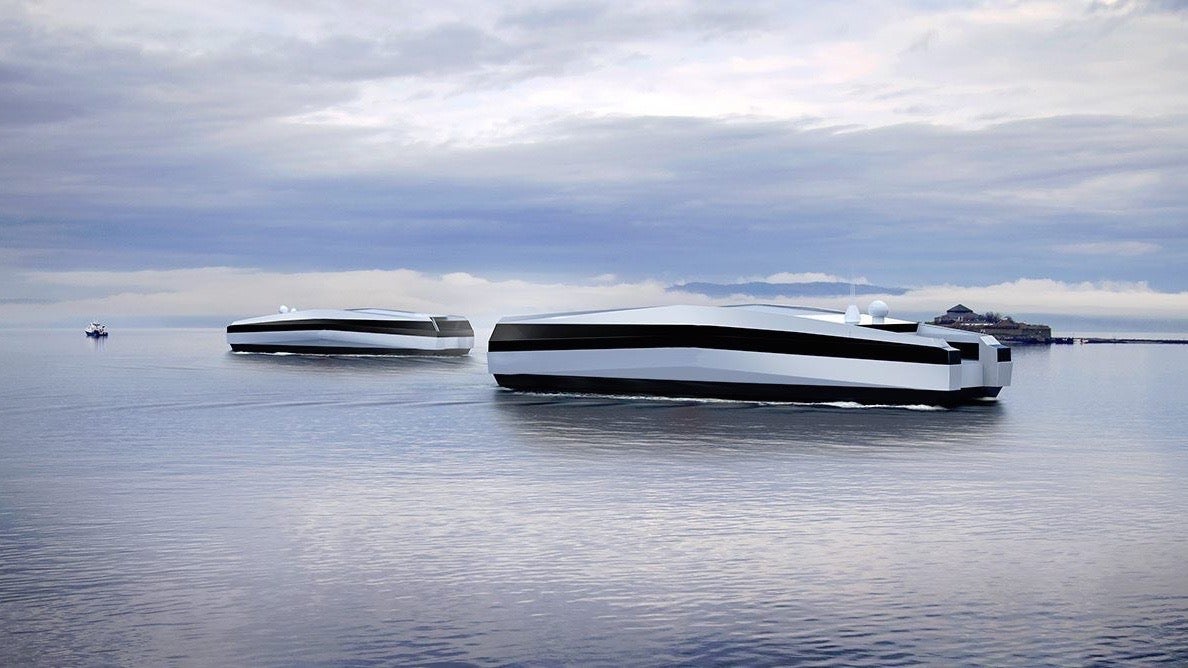Norway Hopes Autonomous Electric Ships Can Replace Trucks
The country is looking to green up its system of cargo transportation.

Norway wants to get cargo shipments off its roads—literally. The Scandinavian country is pushing for the development of autonomous electric ships that can help replace trucks in the nation.
The Norwegian Maritime Authority and the Norwegian Coastal Administration created the Norwegian Forum for Autonomous Ships (NFAS) in September 2016 to tackle this project. The organization has since created two testing zones for autonomous ships, according to Aftenposten. One is in Norway's Trondheim Fjord, the other is in Greenland.
The ships NFAS hopes to develop will not be large oceangoing cargo vessels. Instead, they'll be smaller boats that can navigate shallower waters, and use simpler pier facilities. Since the ships would be carrying cargo only on relatively short routes within Norwegian waters, they wouldn't need vast amounts of cargo capacity.
Instead of trucks or trains, Norway is focusing on autonomous ships because they work best with its topography. Because of the country's numerous fjords, lakes, and rivers, many road journeys in Norway require taking a ferry at some point anyway. Autonomous ships will stick to this local environment initially, but NFAS envisions convoys of them eventually traveling the open ocean, with individual ships peeling off to stop at designated ports en route.
Power for the ships could come from batteries or hydrogen fuel cells, according to NFAS. A battery-powered ferry called the Ampere has been traversing Norwegian waters since 2015, so the concept isn't entirely new. The autonomous ships will rely on a similar suite of sensors to autonomous cars, including cameras, radar, and lidar.
In addition to their low-maintenance electric propulsion systems, the ships will economize by doing away with human crews. They won't have galleys, sleeping quarters, or any other crew accommodations. That means the ships can be smaller and lighter, and thus require less power to move.
Eliminating human crews would lower operating costs as well. While autonomous shipping hasn't really been discussed in the U.S., other industries such as trucking and railroads have begun to grapple with the concept of reducing or totally eliminating human operators thanks to increased automation. The promise of lower costs is counterbalanced by concerns from regulators and the public, however, over massive machines traversing the countryside without human involvement.
The support of government agencies could provide a clearer path to the deployment of autonomous ships in Norway than autonomous road vehicles have had to deal with in other countries. Self-driving cars continue to generate as many regulatory questions as technological ones and, despite the enthusiasm of the companies developing them, no clear answers are forthcoming.
